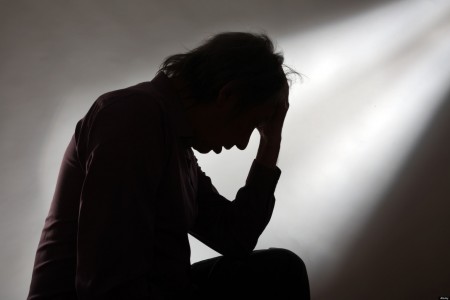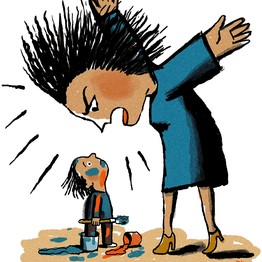Talking About Mental Health in a Muslim Community

By Habiba
Original Source: http://www.time-to-change.org.uk
I have always struggled to talk to my family about my mental health problems openly because I was scared I would not get the support that I need but obviously when you live in the same house, you cannot hide it from them. I live with an eating disorder, social anxiety disorder and depression, which my family find hard to take in. This has left me feeling like I am fighting this by myself and unfortunately, because I have very little support from loved ones, I am not getting any better.
In my experience, mental illness is a very taboo subject in Islam
In my experience, mental illness is a very taboo subject in Islam. You could argue that it is a taboo subject in general but, specifically in Islam, I have found that it can be incredibly difficult for family members to understand.
For me, this has always been the case. I did not open up to family members about this issue for a long time because I was ashamed to even admit it to them. I was afraid of their reaction and thought they would neglect me. So, after speaking to my eating disorder treatment team about being afraid to speak to my family, they offered to sit down with my family and explain to them about why I have this condition and what they are doing to help me, which has helped my family understand a little bit and reassured them that I can get better. I was surprised by their reaction. It was not as bad as I thought it would be. Now, it is easier for me to talk to my family about it but they still find it hard to understand fully.
Support is what I need
An eating disorder affects the whole family, not just the sufferer. If I could control it, I would stop this right now and decide to get better to put my family at rest but it is not simple as that. To my family, I am the one who is “crazy” because I have mental health issues. I know they care and they do not understand the reasons behind why things are so hard for me. If they did, they would not think like they do. Support is what I need. They do not like to admit that I am suffering. It is very much like I am a different person to them, whom they wish was not abnormal. I seem to have become such a burden to my family and that makes me feel incredibly guilty.
This stigma has left me feeling rather lost and alone and like I have no one to turn to. Family is an important part in recovery and when you feel like you cannot talk to the people who you live with, your world seems even darker than it already is.
There is nothing wrong in asking for help
I think some Muslim families neglect the issue of mental illness because of a feeling that it brings shame on them and the reputation of the family. In Islam, we rely on God to heal us. If we are depressed or ill, we pray to God to make us better. We do our five prayers everyday and make du’aa (invocation) whenever possible. If you are a spiritual and faithful person and rely on God to make you better, then there is nothing wrong with that at all. I think that believing in a higher power when feeling down is the most amazing thing to have in you. However, combining proper treatment to get to the root of the illness will make the sufferer see things in a new light. God will always be there to turn to but, sometimes, we need to talk openly about our problems to someone who can help us practically as well as emotionally and create a support network of friends and family.
There is nothing wrong in asking for help. There is nothing wrong in going to your GP and admitting that you are experiencing a mental health problem and that you need psychological help.
I live within a big Muslim community and there is hardly any talk about mental illness. It is as if the problem does not exist. In fact, it seems like it should not exist because people are so ashamed of it and that makes me feel ashamed to even have an illness. We need to start talking.


[…] https://mentalhealth4muslims.com/talking-about-mental-health-in-a-muslim-community/ […]
[…] https://mentalhealth4muslims.com/talking-about-mental-health-in-a-muslim-community/ […]